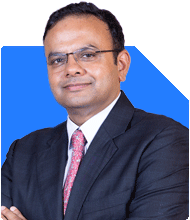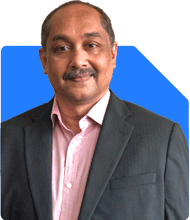Abhishek Dev | Answer |Ask -Follow
Financial Planner - Answered on Sep 13, 2023
A management graduate, he has over 21 years of experience in asset and wealth management.
He has been associated with reputed companies like HSBC GAM (India, south east Asia), PGIM, AMC, AMEX Bank, HDFC AMC and UTI in various roles, including leading business management, sales, marketing, product development and as a board member.... more
Can I invest 80% of my total assets in Mutual Funds? I already own a flat with out any home loan. I am 38 Year old. No Loans. I have one Son (1 Year Old). For my Sons Higher Education I have invested 30L in SBI Small Cap fund(15L), Quant Small Cap Fund (10L) Mirae Asset Midcap Fund (5L).
Obviously your timeframe is long, but having a diversified mix of unrelated assets makes sense.
Also can have a little exposure in Largecaps through Index/Hybrid/Flexicap funds.
You may like to see similar questions and answers below
Ambareesh Baliga | Answer |Ask -Follow
Stock Market Expert - Answered on Feb 05, 2023
Ramalingam Kalirajan |10881 Answers |Ask -Follow
Mutual Funds, Financial Planning Expert - Answered on May 06, 2024
Ramalingam Kalirajan |10881 Answers |Ask -Follow
Mutual Funds, Financial Planning Expert - Answered on Jul 18, 2024
Ramalingam Kalirajan |10881 Answers |Ask -Follow
Mutual Funds, Financial Planning Expert - Answered on Jul 15, 2024
Nayagam P P |10854 Answers |Ask -Follow
Career Counsellor - Answered on Dec 14, 2025
Radheshyam Zanwar |6744 Answers |Ask -Follow
MHT-CET, IIT-JEE, NEET-UG Expert - Answered on Dec 14, 2025
Radheshyam Zanwar |6744 Answers |Ask -Follow
MHT-CET, IIT-JEE, NEET-UG Expert - Answered on Dec 14, 2025
Dr Dipankar Dutta |1840 Answers |Ask -Follow
Tech Careers and Skill Development Expert - Answered on Dec 14, 2025
Dr Dipankar Dutta |1840 Answers |Ask -Follow
Tech Careers and Skill Development Expert - Answered on Dec 13, 2025
Dr Dipankar Dutta |1840 Answers |Ask -Follow
Tech Careers and Skill Development Expert - Answered on Dec 13, 2025
Mayank Chandel |2575 Answers |Ask -Follow
IIT-JEE, NEET-UG, SAT, CLAT, CA, CS Exam Expert - Answered on Dec 13, 2025
Radheshyam Zanwar |6744 Answers |Ask -Follow
MHT-CET, IIT-JEE, NEET-UG Expert - Answered on Dec 13, 2025
Mayank Chandel |2575 Answers |Ask -Follow
IIT-JEE, NEET-UG, SAT, CLAT, CA, CS Exam Expert - Answered on Dec 13, 2025
Mayank Chandel |2575 Answers |Ask -Follow
IIT-JEE, NEET-UG, SAT, CLAT, CA, CS Exam Expert - Answered on Dec 13, 2025
























